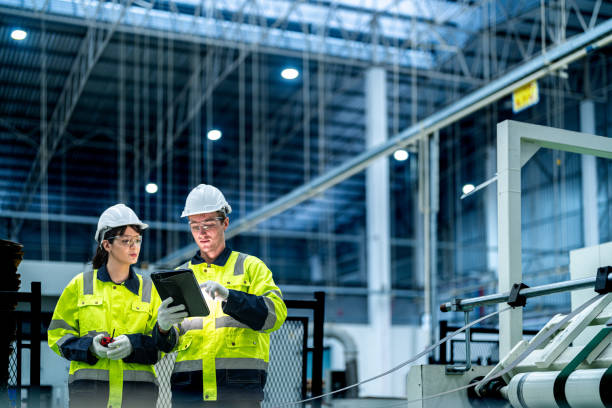Concrete Roof Repairs: Essential Guide to Maintaining Your Roof's Integrity
Concrete roof repairs address cracks, leaks, and weather damages to extend roof life and maintain structure integrity. Professional repair involves sealing, resurfacing, and waterproofing techniques to restore performance and prevent future issues. Read to see what kind of repair you need.

Common Signs Your Concrete Roof Needs Repair
Identifying roof problems early can save substantial repair costs down the line. Watch for telltale signs including visible cracks in the concrete surface, water stains on your ceiling, mold or mildew growth, and loose or missing concrete tiles. Another indicator is standing water on flat concrete roofs, which suggests drainage issues that can lead to leaks and structural damage. If your energy bills have suddenly increased, this may indicate that your roof’s insulation has been compromised due to water infiltration through damaged concrete. Regular roof inspections, especially after severe weather events, can help catch these issues before they worsen.
The Science Behind Concrete Roof Deterioration
Concrete roofs deteriorate through several mechanisms. Freeze-thaw cycles cause water trapped in tiny cracks to expand and contract, gradually widening these imperfections. Carbonation occurs when carbon dioxide from the air reacts with components in the concrete, leading to a reduction in alkalinity that can cause reinforcing steel to corrode. Additionally, ultraviolet rays break down the concrete’s surface over time, while acid rain can accelerate deterioration by chemically eroding the material. Understanding these processes helps homeowners appreciate why prompt roof concrete repair is crucial and why professional assessment is often necessary to determine the full extent of the damage.
Professional Concrete Roof Repair Techniques
Professional roofers employ various specialized techniques to address concrete roof damage. For hairline cracks, elastomeric coatings provide a flexible waterproof barrier that can expand and contract with the concrete. More significant cracks often require routing (widening the crack in a V-shape) before filling with appropriate sealants. For extensive damage, partial replacement of concrete sections might be necessary. Reinforcement techniques, such as the application of fiber-reinforced polymers or the insertion of additional steel reinforcement, can strengthen weakened areas. Professional repairs also typically include addressing drainage issues and applying protective coatings to prevent future damage. These methods require specific expertise and equipment, highlighting why concrete roof repairs are typically not recommended as DIY projects.
DIY vs. Professional Roof Repairs: What Homeowners Should Know
While some minor concrete roof repairs can be tackled by experienced DIY enthusiasts, most require professional intervention. Homeowners might successfully address small surface cracks using commercial concrete patching compounds or sealants. However, structural issues, extensive cracking, or problems involving reinforcement steel demand professional attention. DIY attempts on serious concrete roof repairs can lead to inadequate fixes that mask rather than solve problems, potentially voiding insurance coverage and leading to more expensive repairs later. Professionals bring specialized knowledge about concrete properties, proper repair materials, and safety protocols. Additionally, they can identify underlying issues that might not be apparent to untrained eyes, ensuring comprehensive rather than superficial repairs.
The Cost of Concrete Roof Repairs
The cost of concrete roof repairs varies widely depending on several factors including the extent of damage, roof accessibility, local labor rates, and material costs. Minor repairs focusing on small cracks or limited areas typically range from $300 to $700. More extensive repairs addressing multiple areas of damage or structural issues can cost between $1,000 and $3,500. Complete resurfacing of a concrete roof might range from $3,500 to $8,000 depending on the square footage. Emergency repairs often come with premium pricing, sometimes costing 25-50% more than scheduled work.
| Repair Type | Average Cost Range | Factors Affecting Cost |
|---|---|---|
| Minor crack repairs | $300-$700 | Size, accessibility, location |
| Moderate repairs | $1,000-$3,500 | Extent of damage, materials needed |
| Major structural repairs | $3,500-$8,000 | Labor intensity, material quality, roof size |
| Protective coatings | $1-$3 per square foot | Type of coating, roof condition |
| Complete resurfacing | $3,500-$8,000+ | Square footage, existing damage |
Prices, rates, or cost estimates mentioned in this article are based on the latest available information but may change over time. Independent research is advised before making financial decisions.
Preventive Maintenance to Reduce Future Repair Needs
Implementing a regular maintenance schedule significantly reduces the need for extensive concrete roof repairs. Bi-annual inspections (ideally in spring and fall) help identify problems early. Regular cleaning to remove debris prevents water pooling and moss growth that can damage concrete over time. Application of appropriate sealants every 3-5 years creates a protective barrier against moisture and UV damage. Ensuring proper drainage by keeping gutters and drains clear prevents water accumulation that can lead to freeze-thaw damage. Additionally, addressing minor cracks and issues promptly prevents them from expanding into major problems. Many roofing companies offer maintenance plans that include regular inspections and minor repairs, which can be a cost-effective way to extend your concrete roof’s lifespan.
Conclusion
Concrete roof repairs represent an essential aspect of home maintenance that should never be overlooked or postponed. From addressing minor cracks to managing more significant structural issues, timely intervention can save homeowners thousands in potential damage and extend the roof’s serviceable life. While some minor repairs might be suitable for DIY approaches, most concrete roof issues benefit from professional assessment and repair techniques. By understanding the signs of damage, implementing regular maintenance, and making informed decisions about repairs, homeowners can protect their investment and ensure their concrete roof continues to provide reliable protection for years to come.




